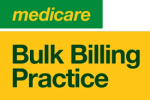


Hello, I am Dr. Ahmos Aziz Youssef, a family practitioner with a practice located in River Heads, Hervey Bay. I understand the importance of family planning in ensuring the well-being of you and your loved ones. As your trusted healthcare provider, I am here to offer guidance and support in navigating the realm of family planning.
Family planning is a crucial aspect of reproductive health that allows individuals and couples to make informed choices about when to start a family, the spacing between children, and the means to achieve those goals. Whether you are considering starting a family, expanding it, or simply want to ensure responsible family planning, my team and I are here to provide you with the necessary information and assistance.
Our comprehensive River Heads family planning services include:
- Contraceptive Counseling: Receive guidance on various contraceptive methods available, including birth control pills, patches, intrauterine devices (IUDs), implants, and more. We will help you understand the benefits, risks, and suitability of each method based on your unique health needs and lifestyle.
- Preconception Counseling: If you are planning to start a family, we offer preconception counseling to ensure a healthy and smooth pregnancy journey. We will discuss lifestyle modifications, nutrition, and any necessary health screenings to optimize your chances of a successful pregnancy.
- Fertility Assessment: For those facing challenges with conception, we provide fertility assessments and guidance. We will work closely with you to identify potential issues and develop personalized treatment plans to enhance your fertility and increase the likelihood of a successful pregnancy.
- Pregnancy Planning: Our support extends to assisting you in planning for a healthy pregnancy. We offer comprehensive prenatal care, including regular check-ups, screenings, and education on maintaining a healthy lifestyle during pregnancy.
I believe in creating a safe and welcoming environment where you can openly discuss your family planning concerns and aspirations. My team and I are committed to providing you with the necessary tools and information to make informed decisions about your reproductive health, ensuring a happy and healthy future for you and your family.
Feel free to schedule an appointment at our River Heads practice to explore your family planning options and embark on a journey towards a fulfilling and well-planned family life.
Warm regards,
Dr. Ahmos Aziz Youssef
People Also Ask
What is family planning?
Family planning refers to the conscious and deliberate effort by individuals and couples to control the number, spacing, and timing of their children’s births. It involves the use of various contraceptive methods and the understanding of reproductive health to make informed decisions about when to have children and how many to have. Family planning encompasses a range of services that enable people to choose if and when to have children based on their individual circumstances, health, and personal beliefs.
The primary goals of family planning include:
- Helping individuals and couples to have the desired number of children.
- Increasing the spacing between pregnancies to promote the health of the mother and child.
- Reducing the risks associated with unintended pregnancies.
- Improving the overall health and well-being of families and communities.
Family planning services typically include counseling, education, and access to a variety of contraceptive methods such as birth control pills, condoms, intrauterine devices (IUDs), implants, and sterilization procedures. These services also often include preconception care, fertility assessments, and pregnancy planning for those actively trying to conceive.
Apart from contraception, family planning services may also involve addressing infertility issues, managing reproductive health concerns, and providing support for individuals and couples throughout their reproductive life span.
By offering individuals and couples the tools and information they need to make informed decisions about their reproductive health, family planning plays a crucial role in promoting the overall well-being of families, communities, and societies as a whole.
What are the 5 family planning methods?
There are various effective family planning methods available, each offering different levels of protection and suitability depending on individual preferences and health considerations. The following are five commonly used family planning methods:
- Contraceptive Pills: These are oral medications that contain hormones to prevent pregnancy. They work by inhibiting ovulation, thickening cervical mucus to prevent sperm from reaching the egg, and thinning the lining of the uterus to prevent implantation.
- Condoms: Condoms are a barrier method of contraception that create a physical barrier to prevent sperm from reaching the egg. They also offer protection against sexually transmitted infections (STIs).
- Intrauterine Devices (IUDs): These are small, T-shaped devices inserted into the uterus to prevent pregnancy. IUDs work by either releasing hormones or creating an environment that is toxic to sperm, thereby preventing fertilization. They can be used for several years before requiring replacement.
- Implants: Implants are small, flexible rods placed under the skin of the upper arm that release progestin, a hormone that prevents pregnancy. They work by thickening cervical mucus and preventing ovulation.
- Sterilization: This is a permanent form of contraception that involves surgical procedures to prevent the release of eggs in women (tubal ligation) or block the sperm from reaching the semen in men (vasectomy). It is considered a long-term and irreversible method of family planning.
It’s essential to consult with a healthcare provider to determine the most suitable family planning method based on individual health considerations, lifestyle, and family planning goals.
What is the most safest family planning method?
The safety of a family planning method can depend on various factors, including individual health conditions, age, lifestyle, and personal preferences. It’s important to consult with a healthcare provider to determine the most suitable option based on your specific circumstances. However, some of the generally considered safe and effective methods include:
- Long-Acting Reversible Contraceptives (LARCs): These include intrauterine devices (IUDs) and contraceptive implants. LARCs are highly effective, reversible, and have a low risk of user error. They provide long-term contraception without requiring regular attention.
- Sterilization: Both male and female sterilization methods are considered safe and highly effective forms of permanent contraception. However, it’s important to note that sterilization is not reversible, so it should be considered only if you are certain that you do not want to have children in the future.
- Contraceptive Implants: Implants are a highly effective form of long-acting reversible contraception. They are inserted under the skin and release hormones that prevent pregnancy for several years. They have a very low failure rate and are considered safe for most women.
- Copper IUDs: Intrauterine devices that do not contain hormones, known as copper IUDs, are also considered safe and highly effective. They can provide contraception for up to 10-12 years, depending on the type, and are suitable for women who prefer non-hormonal methods.
It’s crucial to discuss your medical history, any pre-existing conditions, and individual preferences with a healthcare provider when considering a family planning method. They can provide personalized guidance and help you make an informed decision based on your specific needs and circumstances.

